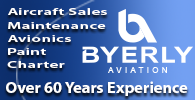The Tax Cuts and Jobs Act (TCJA) of 2017 has transformed and jump-started the resurgence of the business aviation industry. Many manufacturers are facing backlogs resulting in a 12-month or more waiting period for customers to take delivery of new business aircraft.
TCJA implemented one hundred percent bonus depreciation for business aircraft with a phase-out beginning in 2023. The following table illustrates the phase-out for new and used aircraft:
| 2022 | 2023 | 2024 | 2025 | 2026 | 2027 | |
| Used Aircraft | 100% | 80% | 60% | 40% | 20% | N/A |
| New Aircraft * | 100% | 100% | 80% | 60% | 40% | 20% |
* New aircraft acquisition receives a one-year reprieve on the phase-out of bonus depreciation if the following requirements are met:
- New aircraft or a demonstrator
- Written binding contract executed with a nonrefundable deposit of at least $100,000
- For 2023 delivery, binding contract is executed before December 31, 2022
- For 2024 delivery, binding contract is executed before December 31, 2023
- Production period of the aircraft exceeds 4 months
- Aircraft use is non-commercial (not primarily for 135 charter use)
If a taxpayer signs a binding contract to purchase a new business aircraft before December 31, 2022, the aircraft will qualify for 100 percent bonus depreciation in tax year 2023, when the aircraft is delivered and placed in service.
If a taxpayer signs a binding contract to purchase a new business aircraft before December 31, 2023, the aircraft will qualify for 80 percent bonus depreciation in tax year 2024, when the aircraft is delivered and placed in service.
If a taxpayer signs a contract to buy a new or used aircraft in 2023, 80 percent bonus depreciation is applied when the aircraft is delivered and placed in service in 2023.
Gain Recognition When Selling an Aircraft
Another phenomenon resulting from the resurgence of the business aviation industry is that many aircraft are appreciating in value. This is causing a scenario we have not experienced in recent years—clients are selling their newly purchased aircraft at significant profits.
When a depreciated business aircraft is sold, this results in a taxable gain—recapture of depreciation. Gain is computed based on the sale price less the remaining tax basis of the aircraft. If a taxpayer takes 100 percent bonus depreciation on an aircraft, the tax basis is reduced to zero. Whenever the aircraft is sold, a “recapture” of tax depreciation will be taxed as ordinary income. If the aircraft is sold above the original acquisition price, this gain is taxed as capital gains. The length of the holding period will determine if the gain is taxed as short-term or long-term capital gains. The net after tax cash flow should be analyzed to support the decision to dispose of a business aircraft.
The following table illustrates the various income tax treatments when a business aircraft is sold:
| Purchase Date | December 2020 | December 2021 | March 2022 |
| Purchase Price | $9,000,000 | $10,000,000 | $11,000,000 |
| Sale Date | June 2022 | June 2022 | June 2022 |
| Sale Price | $12,000,000 | $12,000,000 | $12,000,000 |
| Depreciation Taken | $9,000,000 | $10,000,000 | 0 |
| Tax Basis Remaining | 0 | 0 | $11,000,000 |
| Taxable Gains | $12,000,000 | $12,000,000 | $1,000,000 |
| Ordinary Income (37%) | $9,000,000 | $10,000,000 | 0 |
| Long Term Cap Gains (20%) | $3,000,000 | $2,000,000 | 0 |
| Short Term Cap Gains (37%) | 0 | 0 | $1,000,000 |
- State income tax treatment varies by state
- No depreciation allowed when aircraft is purchased and sold in the same tax year
- Tax rates are for illustration purpose only. Actual tax rate will likely be higher with surcharge and phase-outs
- Long term capital gains – holding period over one year
For more information, visit www.aviationtaxconsultants.com or call 1-812-342-9589.
Aviation Tax Consultants (ATC) assists aircraft buyers in acquiring aircraft in a tax-efficient manner. Our services include the elimination or reduction of sales tax at the time of purchase, maximizing income tax savings, controlling the cost of personal use of the aircraft, complying with passive activity loss, hobby loss and related party leasing rules and Federal Aviation Regulations. Cooperation with client’s current tax and legal advisors is welcome and encouraged.




